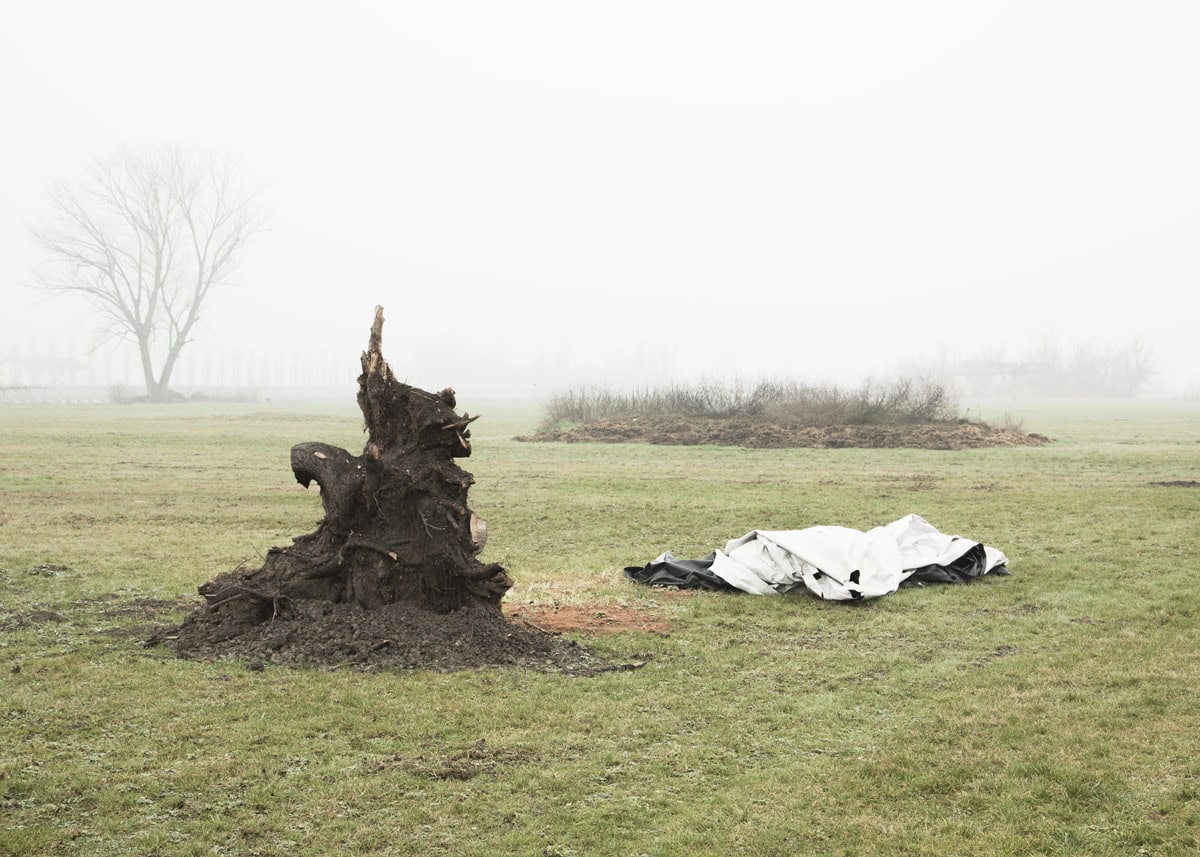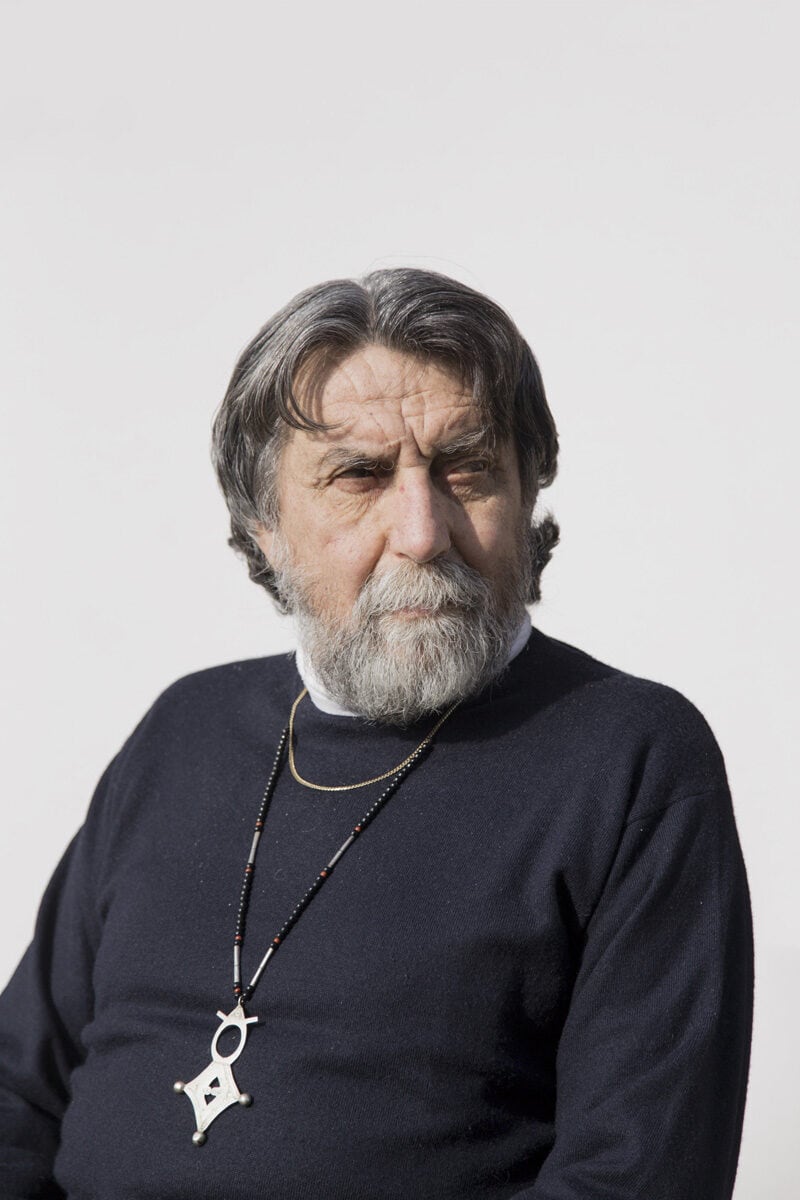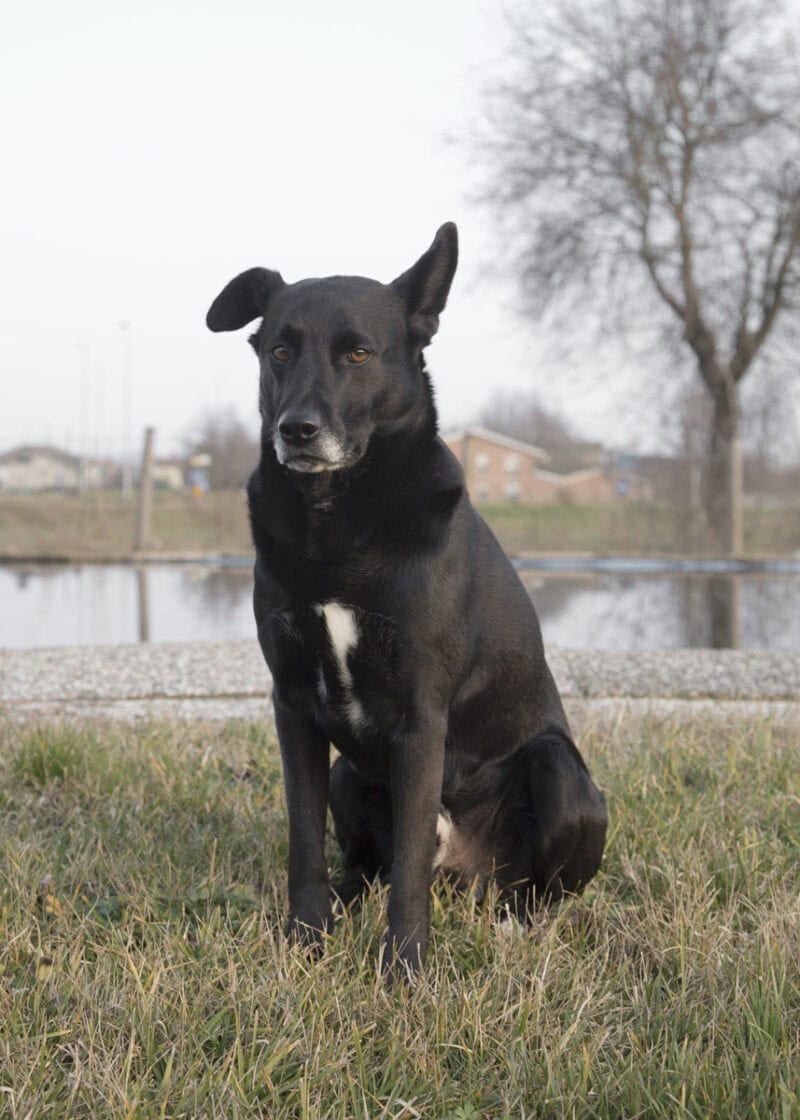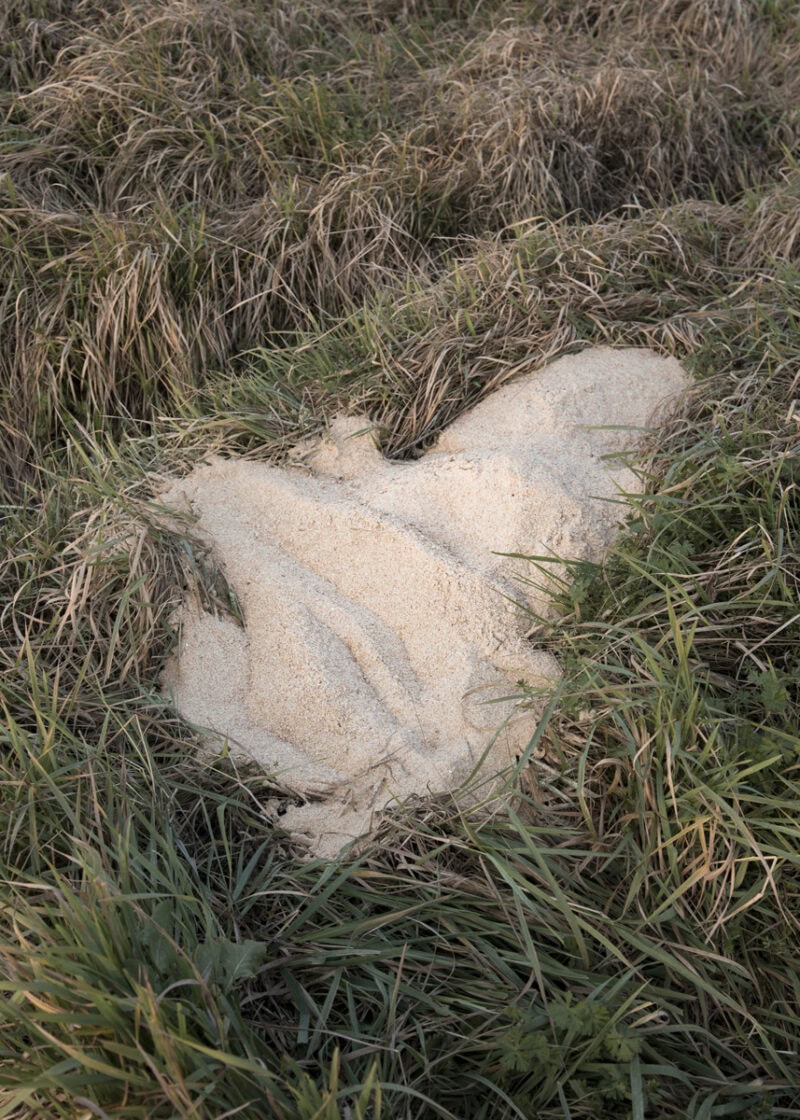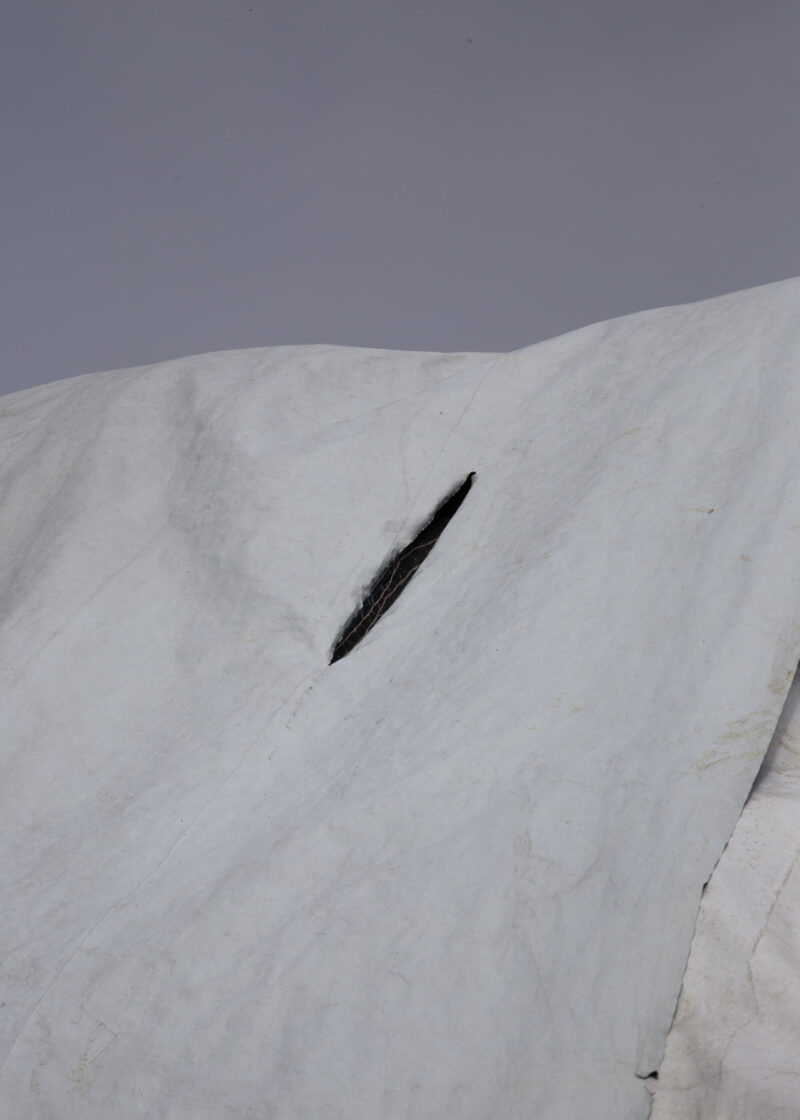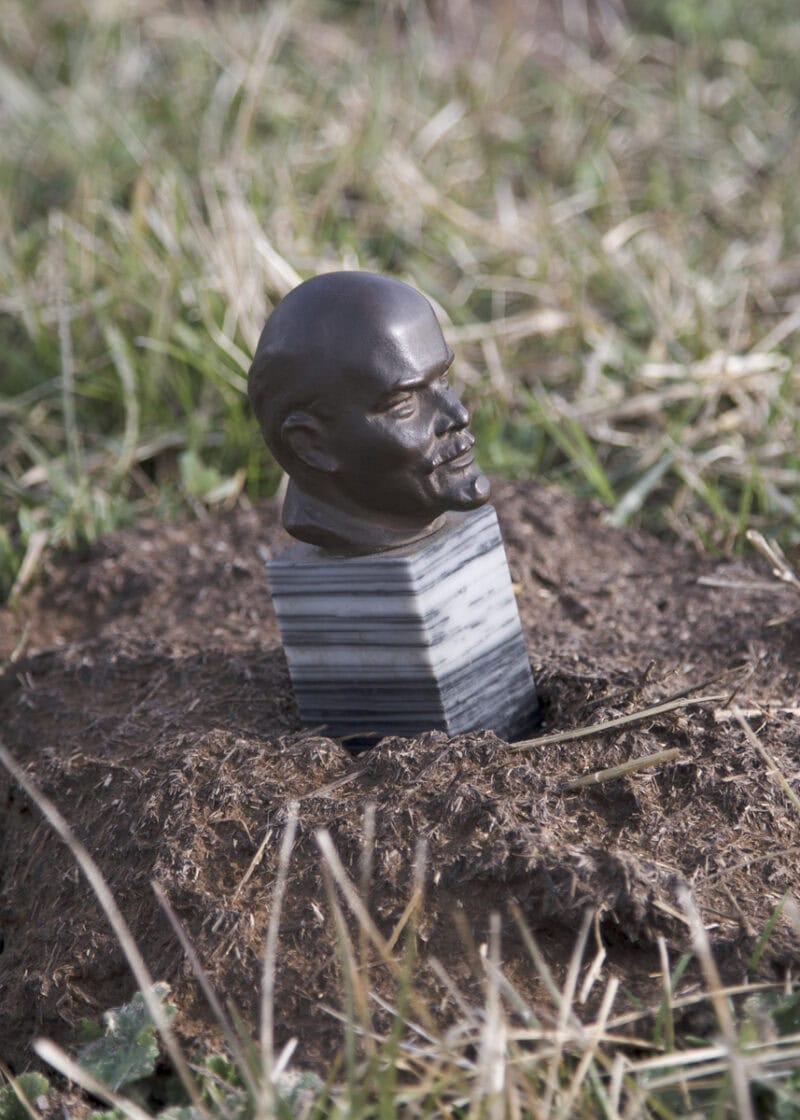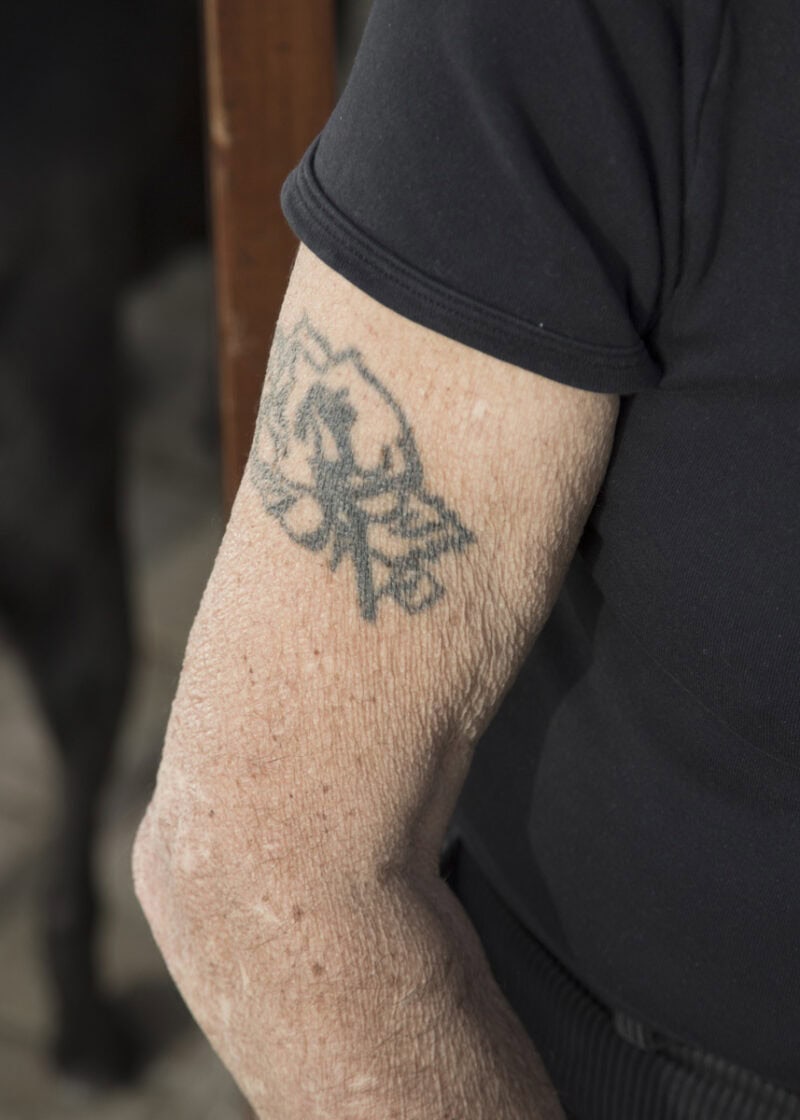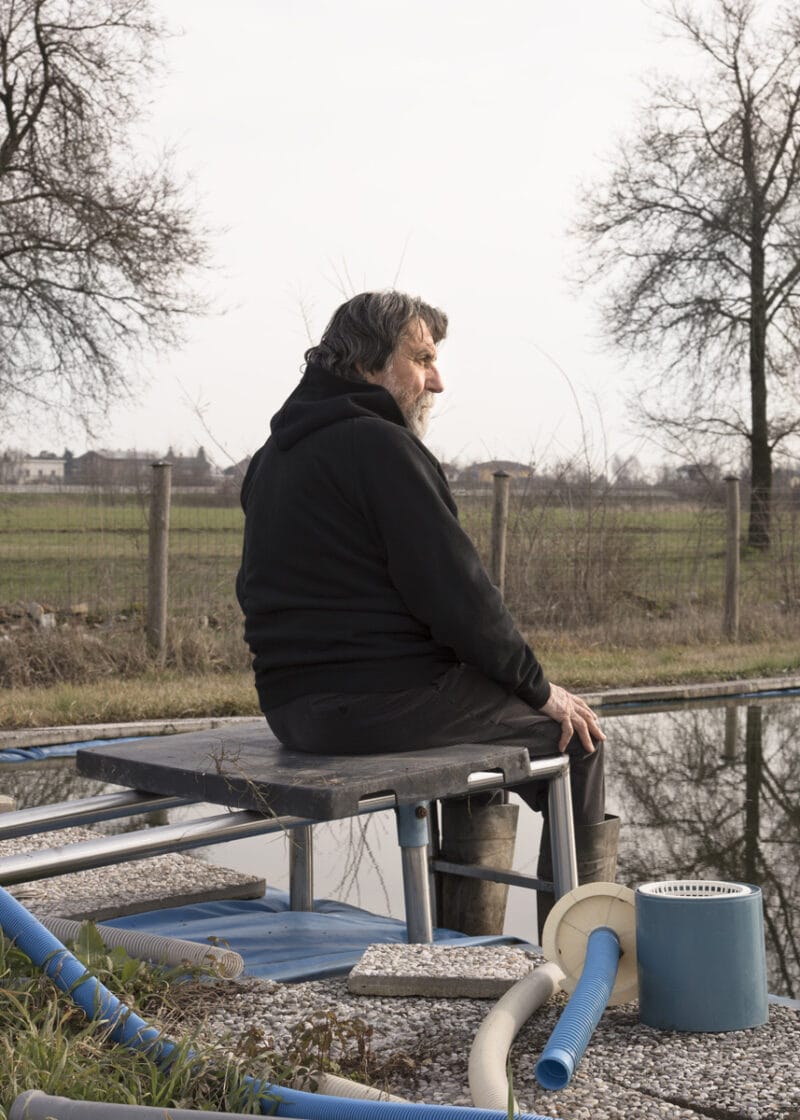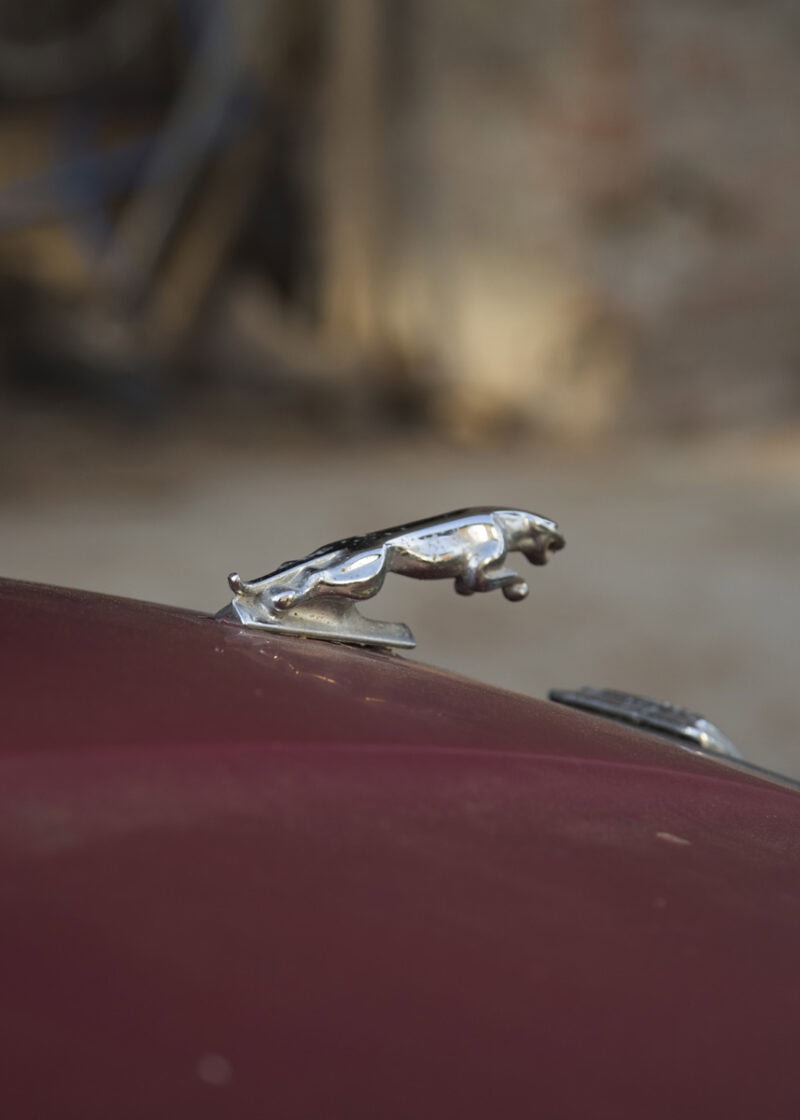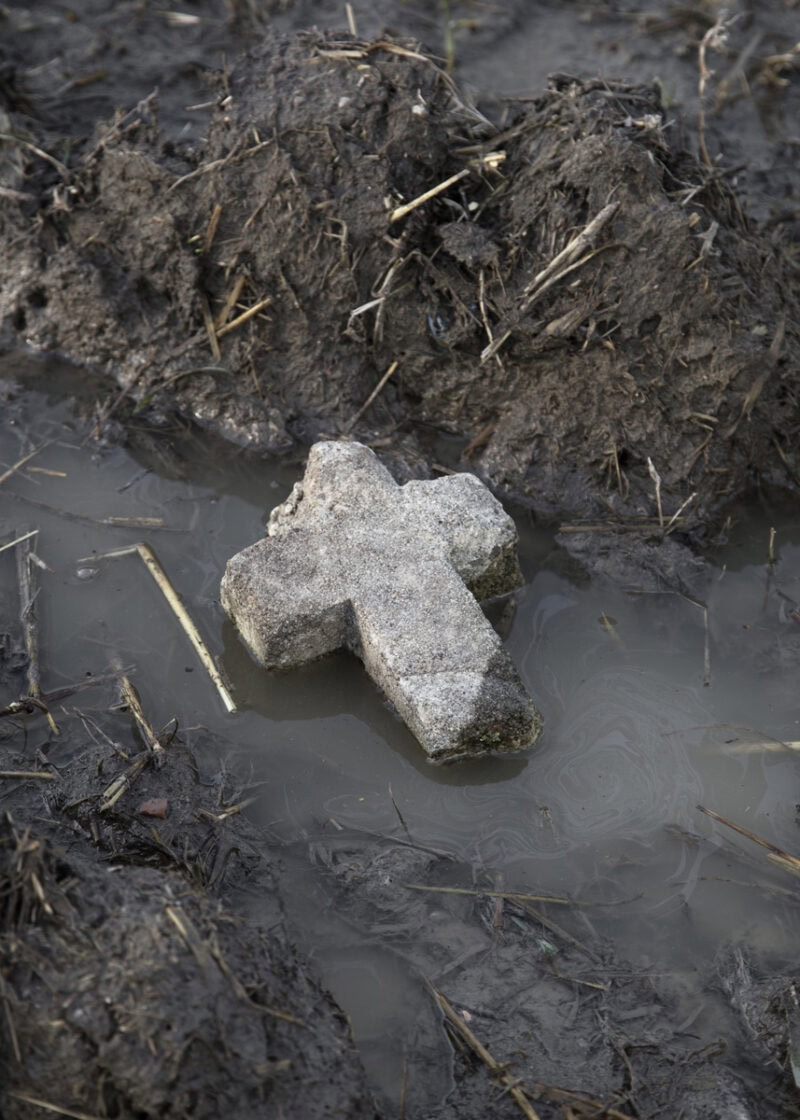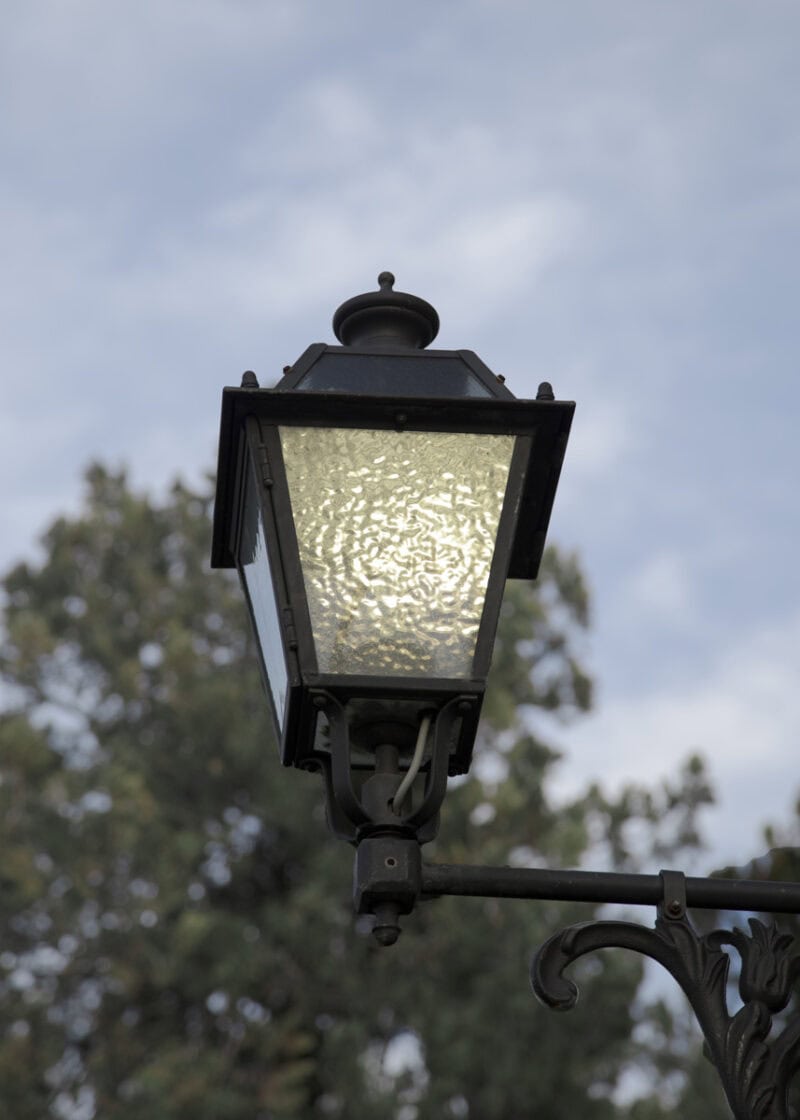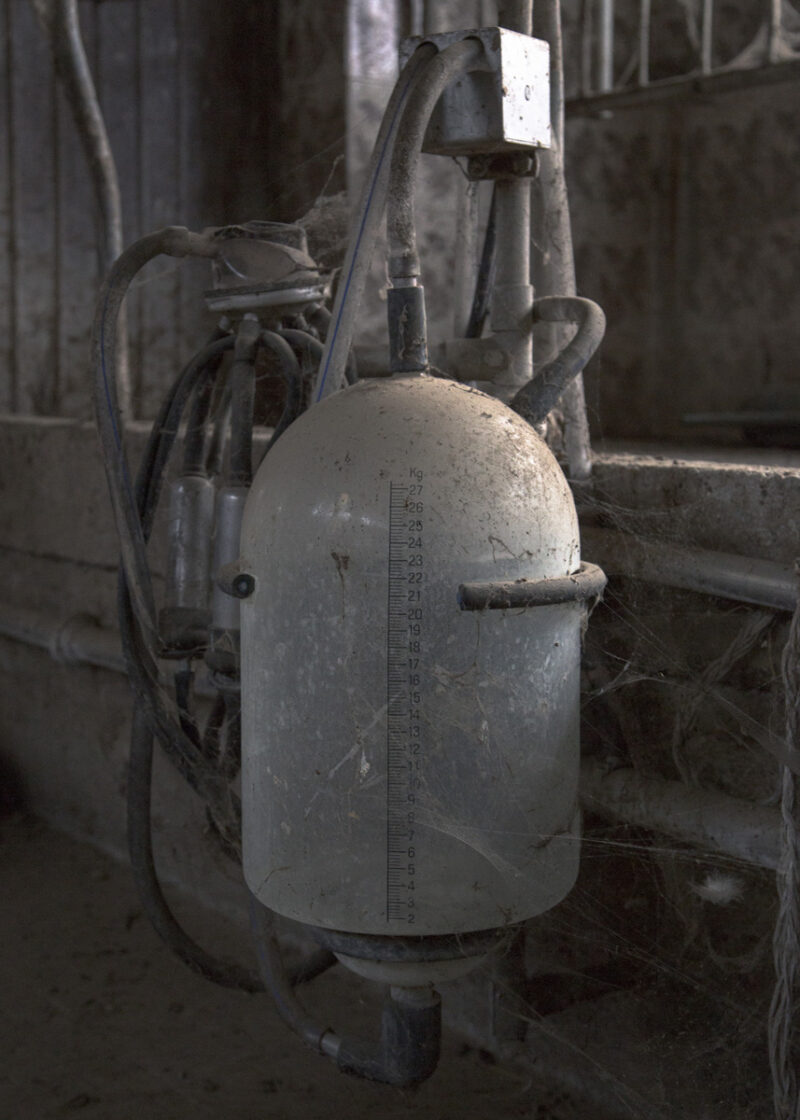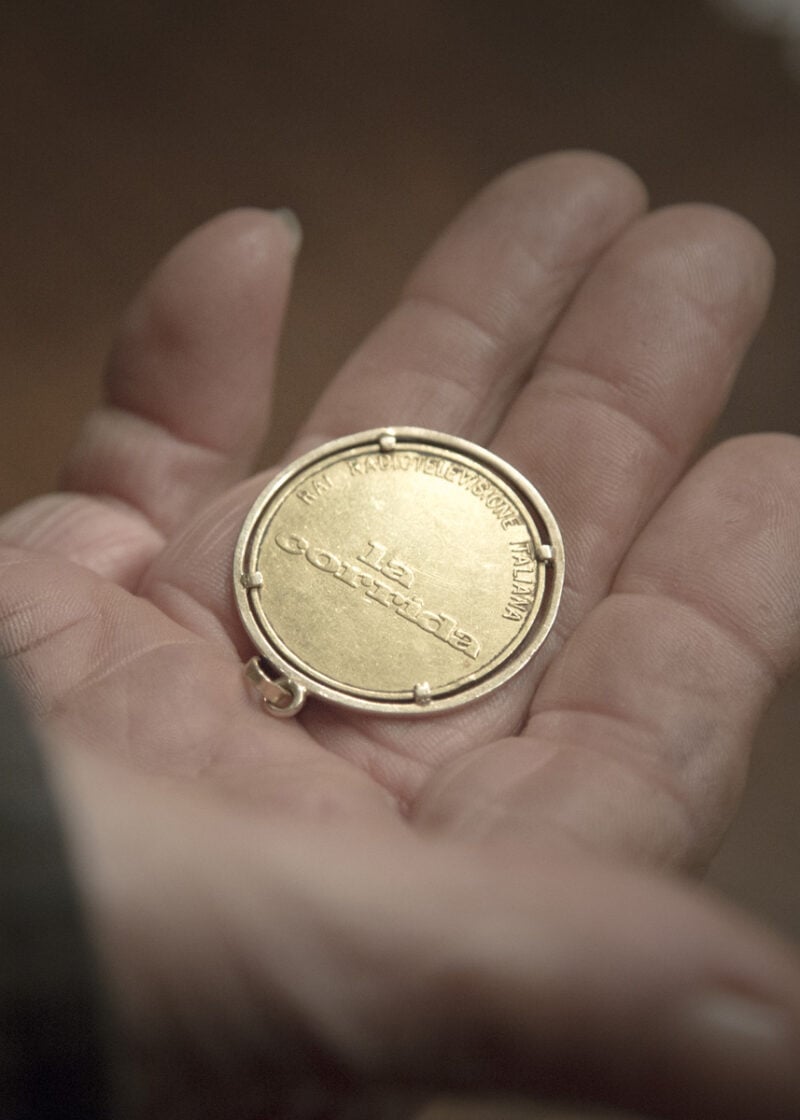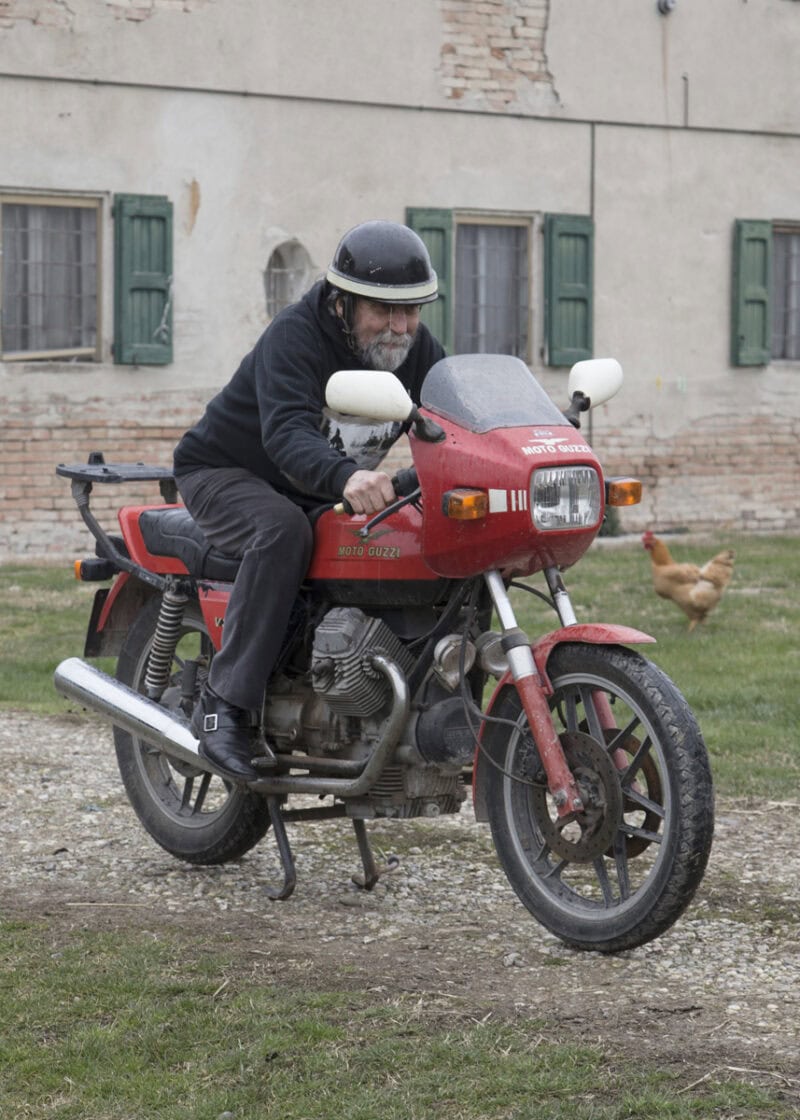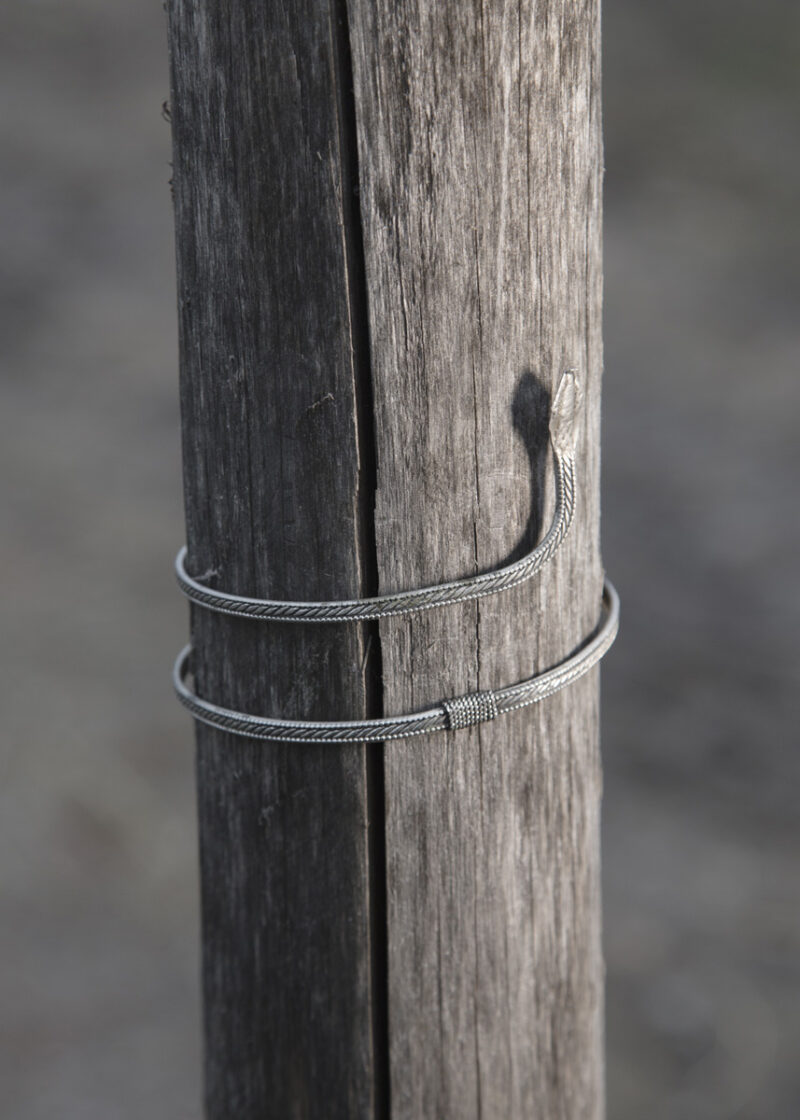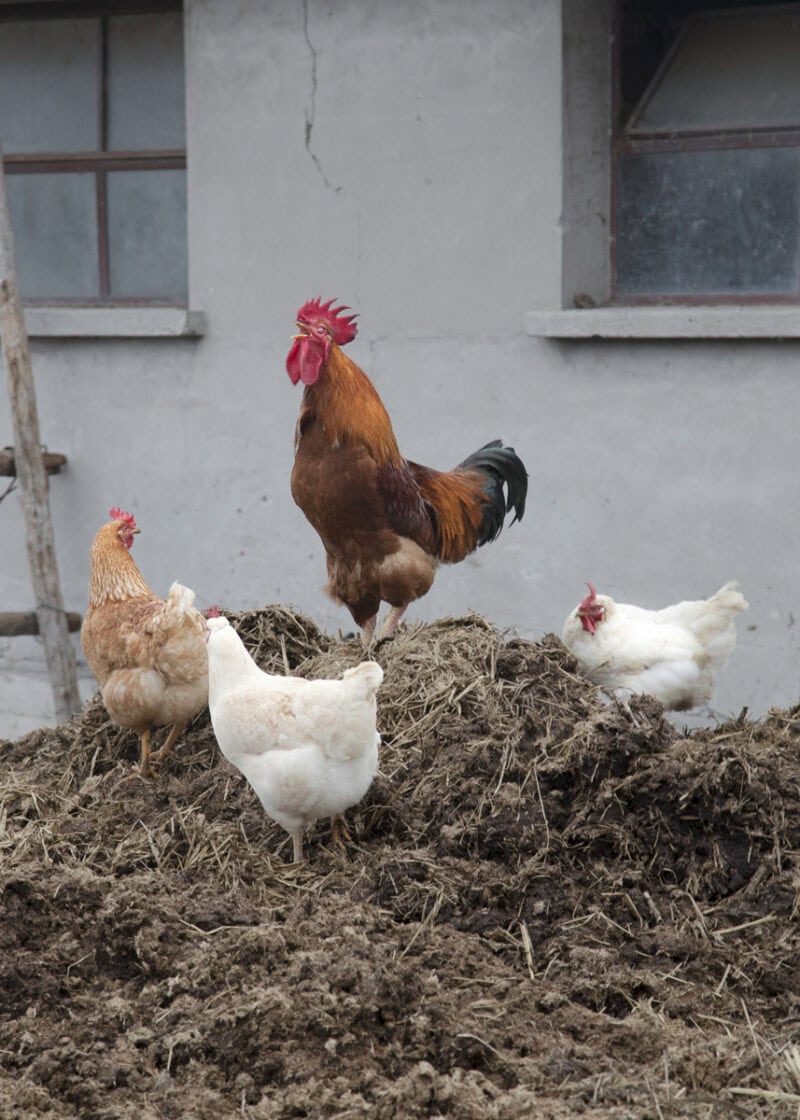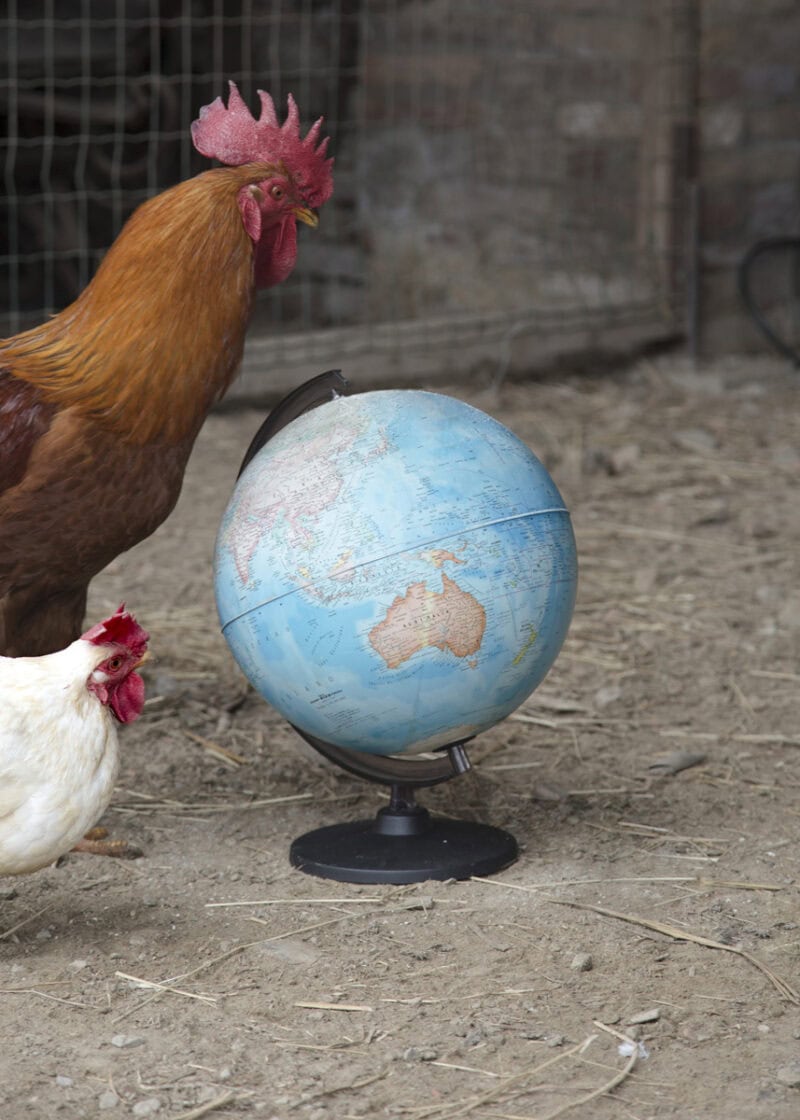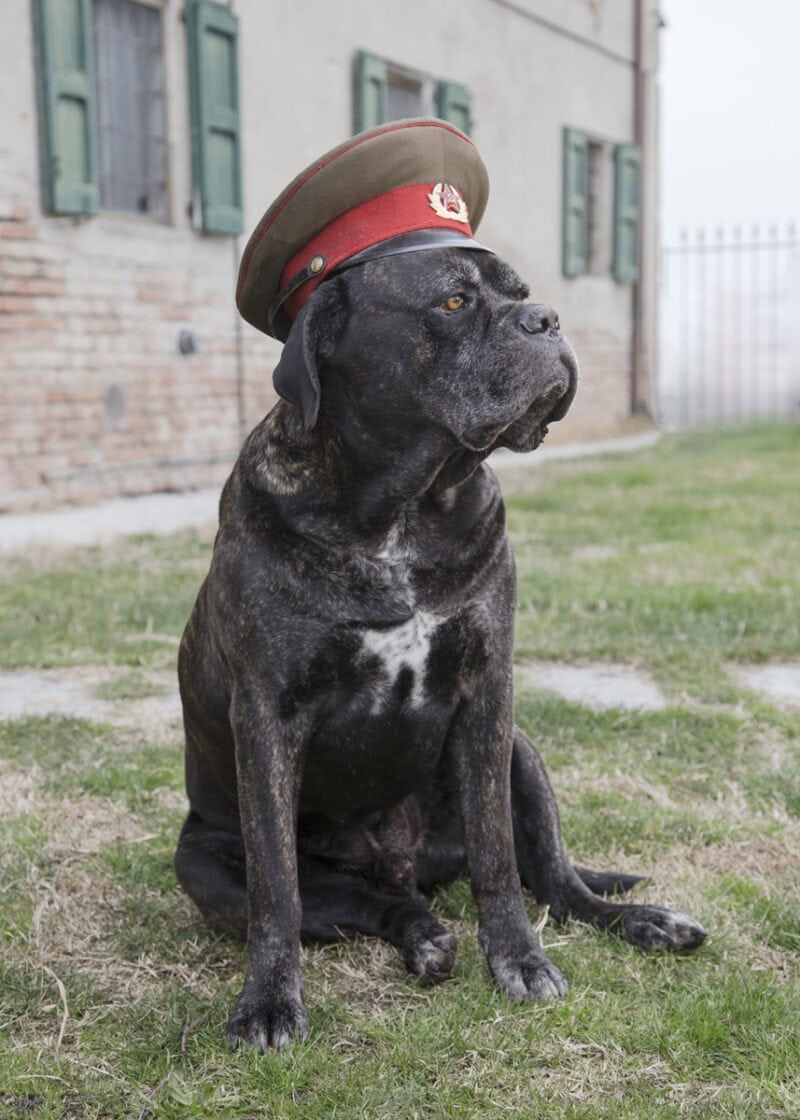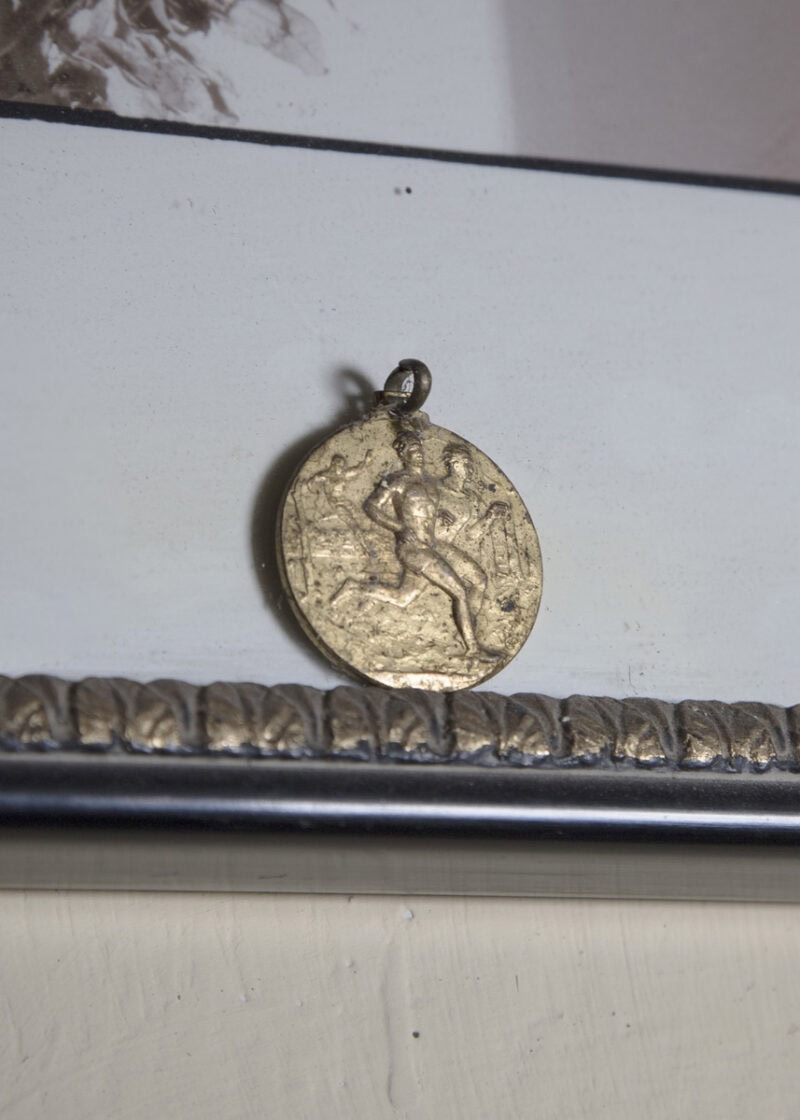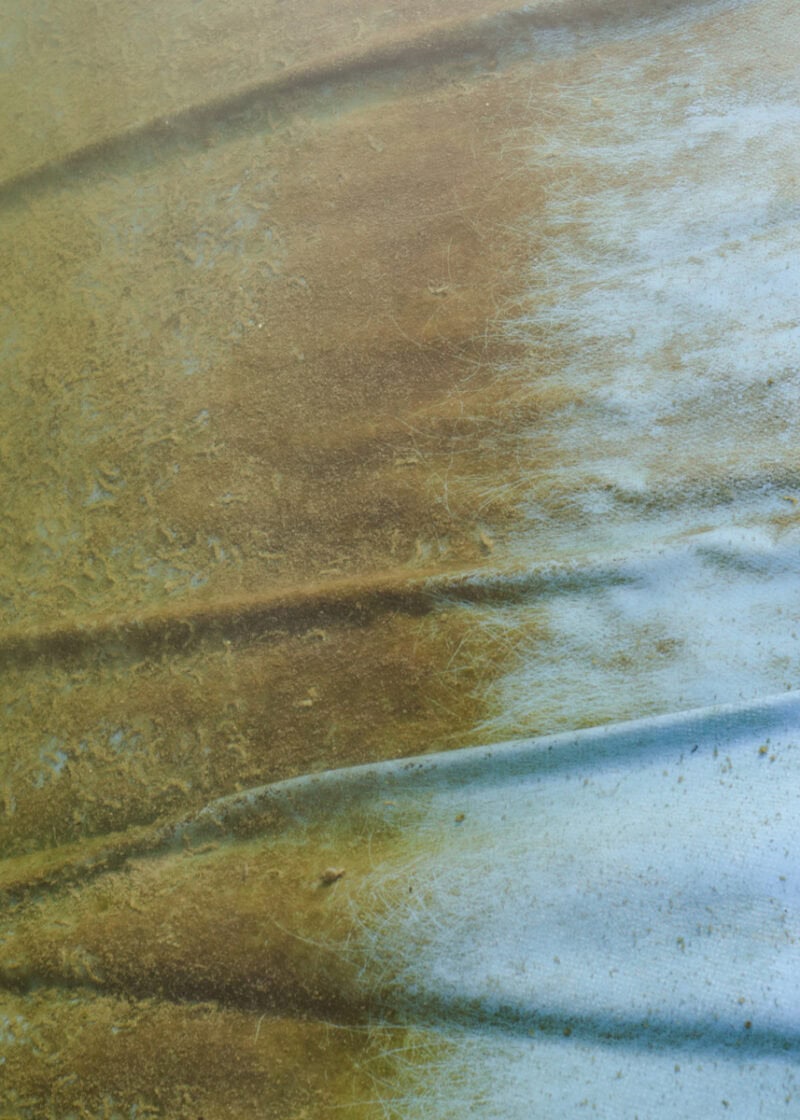Tommaso Braglia is a self-taught amateur photographer, born and raised in the Po Valley. after architecture studies he worked as set designer for several editions of Fotografia Europea festival and as personal assistant of Joan Fontcuberta in Barcelona. Driven by the poetics of banality, for him, photography is not a job, but something he always live with.
Guglielmo Giomi is an interdisciplinary designer raised in Tuscany, holding a communication design bachelor, he specialized himself in photography in the Netherlands. his research resolves around phenomena of spatial representation and counter-narrative of places.
About The Extraordinary Life of an Ordinary Lenin – words by Tommaso Braglia and Guglielmo Giomi:
Nowadays the concept of “revolution” seems perhaps obsolete, useless or, for somebody, betrayed. The dominant ideology has removed this term in the name of “overcoming ideologies”. The international left-wing itself has explicitly denied it or considered it an archival matter, perhaps useful for some recurrence but extraneous to any real perspective. And yet, it is perhaps useful to remember that even a hundred years ago the revolution was considered “impossible”, seeing that since 1848 it had not appeared in Europe, and if it was possible, it was due to a person. Actually, to a name: Lenin.
The same Lenin who, after a forced exile in Switzerland, in 1917, crossing a war-torn Europe with the famous train, managed to return secretly to St. Petersburg, Russia, and, within seven months, overthrow the government during the famous October Revolution. But it is only in August 1918 that Lenin, as a result of the assassination attempt he suffered, began to be exalted as a saint, an apostle, a prophet, a martyr, so that, following his death in 1924, the body it was exposed to the public, until today, preserved according to an embalming technique, in his Mausoleum on the Red Square, next to which you can find today his lookalike, with which you can take photographs or selfies.
For a Lenin who disappears, in his oblivion, petrified in monuments and statues scattered around the former Soviet Union, or placed in some history textbook, there is a Lenin that appears, which is revealed to the world. From the land, the same that has not yet welcomed Vladimir Il’ič Ulyanov, a man sprouts, bearing his identical name. It is a farmer, a son of a widespread and geolocalized tradition along endless green fields, ditches and mosquitoes, which characterize the Po Valley, in the province of Reggio Emilia, in a territory where the boundaries are not always so clear.
Lenin knows the inheritance, for some people too important, innate in his name and, instead of hiding it or being ashamed, he takes its responsibility. Lenin is not a man of the world, has never traveled and has never seen with his eyes what is hidden beyond the Apennines, but he knows very well, and denies, all those immoral principles that move the world today. A world that however does not despise, but respects and loves. Or he tries to exorcise them, when he cannot do without them, like when he has to buy a car, not a small car but a Jaguar, he coming out of the usual clichés and overturning the way things are born and considered. He did not have the opportunity to speak to the peoples, to create followers or faithful, but he nevertheless spoke and divulged his manifesto in his small non-Orwellian state, which is a simply farm just outside Bagnolo in Piano. Here, in an interpretative scale of smaller scale than Mother Russia, between horses, dogs and bees, Lenin still defends his ideals, his innermost dreams and his freedom to be a pragmatic utopist.
Attracted by anonymity: that crowd where he can see everyone and at the same time disappear completely, without being seen. He is happy, serene, he knows he has lived an extraordinary life in his ordinariness, fullness, affections, joys and emancipation. He knows he is something particular, that breathes and embodies universality, in a cosmos that rotates according to the strength of his ideas, his actions, past, present and future, and around one, not so clear, borderline between the real and the utopian.
Leave behind every idea you have about this name, here we are talking about an ordinary Lenin.
